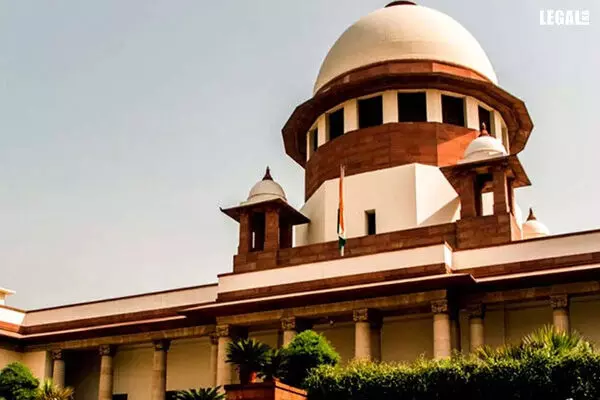- Home
- News
- Articles+
- Aerospace
- AI
- Agriculture
- Alternate Dispute Resolution
- Arbitration & Mediation
- Banking and Finance
- Bankruptcy
- Book Review
- Bribery & Corruption
- Commercial Litigation
- Competition Law
- Conference Reports
- Consumer Products
- Contract
- Corporate Governance
- Corporate Law
- Covid-19
- Cryptocurrency
- Cybersecurity
- Data Protection
- Defence
- Digital Economy
- E-commerce
- Employment Law
- Energy and Natural Resources
- Entertainment and Sports Law
- Environmental Law
- ESG
- FDI
- Food and Beverage
- Gaming
- Health Care
- IBC Diaries
- In Focus
- Inclusion & Diversity
- Insurance Law
- Intellectual Property
- International Law
- IP & Tech Era
- Know the Law
- Labour Laws
- Law & Policy and Regulation
- Litigation
- Litigation Funding
- Manufacturing
- Mergers & Acquisitions
- NFTs
- Privacy
- Private Equity
- Project Finance
- Real Estate
- Risk and Compliance
- Student Corner
- Take On Board
- Tax
- Technology Media and Telecom
- Tributes
- Viewpoint
- Zoom In
- Law Firms
- In-House
- Rankings
- E-Magazine
- Legal Era TV
- Events
- News
- Articles
- Aerospace
- AI
- Agriculture
- Alternate Dispute Resolution
- Arbitration & Mediation
- Banking and Finance
- Bankruptcy
- Book Review
- Bribery & Corruption
- Commercial Litigation
- Competition Law
- Conference Reports
- Consumer Products
- Contract
- Corporate Governance
- Corporate Law
- Covid-19
- Cryptocurrency
- Cybersecurity
- Data Protection
- Defence
- Digital Economy
- E-commerce
- Employment Law
- Energy and Natural Resources
- Entertainment and Sports Law
- Environmental Law
- ESG
- FDI
- Food and Beverage
- Gaming
- Health Care
- IBC Diaries
- In Focus
- Inclusion & Diversity
- Insurance Law
- Intellectual Property
- International Law
- IP & Tech Era
- Know the Law
- Labour Laws
- Law & Policy and Regulation
- Litigation
- Litigation Funding
- Manufacturing
- Mergers & Acquisitions
- NFTs
- Privacy
- Private Equity
- Project Finance
- Real Estate
- Risk and Compliance
- Student Corner
- Take On Board
- Tax
- Technology Media and Telecom
- Tributes
- Viewpoint
- Zoom In
- Law Firms
- In-House
- Rankings
- E-Magazine
- Legal Era TV
- Events
Supreme Court: In Cheque Dishonor Case, Interim Compensation Can Be Ordered Only After Accused Pleads Not Guilty

Supreme Court: In Cheque Dishonor Case, Interim Compensation Can Be Ordered Only After Accused Pleads Not Guilty
It was hearing a Special Leave Petition against the order of the Allahabad High Court
The Supreme Court has held that if a cheque is dishonored, the interim compensation can be directed to be paid only after the accused has pleaded not guilty as per Section 143A (1) of the Negotiable Instruments Act, 1881.
The Court noted that the magistrate had directed to pay 10 percent of the cheque amount before the plea of the accused was entered. Under the law, this is not the norm.
The Bench led by Justice Ravindra Bhat and Justice Aravind Kumar observed, “The magistrate did not issue the order after the plea of the accused was entered, but before that i.e. after he answered the summons. The party's counsels were present at an intermediate stage of the proceedings, but before the plea of “not guilty” was entered. In these circumstances, clearly, there is an infraction of Section 143A (1).”
The Court was hearing the appellant’s Special Leave Petition against the order of the Allahabad High Court, which did not find any illegality in the impugned summoning order. It allowed the appeal and quashed the order passed by CJM, as it was unsustainable in law.
The case pertained to a financial relationship between the petitioner and the complainant for which the cheques were issued. The complaint said that to settle the loan, a cheque was issued, but it was dishonored.
In its 24 May 2022 order, the Trial Court directed the petitioner to deposit 10 percent of the amount of a dishonored cheque under the NI Act.
The issue was whether in a cheque dishonor case, the interim compensation could be granted even before the accused pleaded not guilty.
Appearing for the appellant, Senior Counsel Siddharth Dave argued that the order requiring such deposit was made by the magistrate prior to the notice sent to the accused petitioner.
On the other hand, Devashish Bharuka, the Counsel appearing on behalf of the respondent, argued that the trial had reached its final stage. The complainant’s evidence and the appellant’s statements were recorded. So, no prejudice would be caused to the appellant.
The Apex Court held that under Section 143A (1), the direction for payment of interim compensation could only be made after the accused pleaded not guilty. Therefore, the trial Court’s order was untenable in law and quashed it.
It maintained that even if the trial was at an advanced stage, the complainant could seek relief, since it could be claimed at any point.


